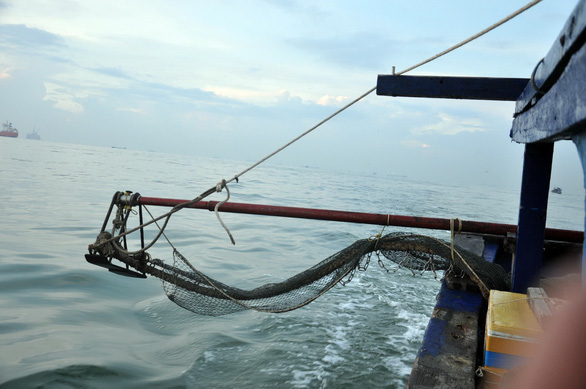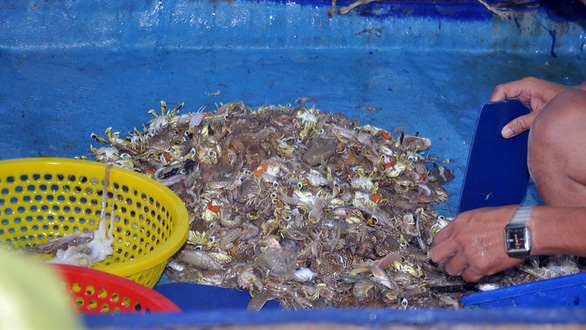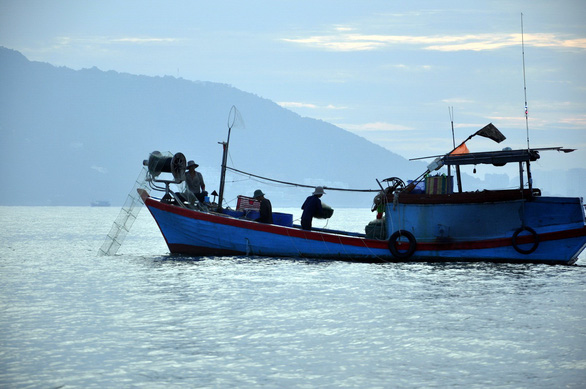Seafood supplies are being depleted at an alarming rate in the waters off the south-central Vietnamese coast and fishermen are getting discouragingly lower incomes as banned trawlers and small-mesh fishing nets have been stubbornly employed.
Vietnam has forbidden bottom trawling and the use of nets with mesh sizes under 10 millimeters for many years but the practices can be still seen in the waters along the coastline from the resort city of Nha Trang to Ba Ria-Vung Tau Province, next to Ho Chi Minh City.
A number of small-horsepower boats that drag nets along the sea bottom or pull the banned nets operate just a few nautical miles from the coast of Ba Ria-Vung Tau after dusk and before dawn to dodge authorities.
Around 1,600 out of a fleet of nearly 6,000 offshore fishing boats with 90-horsepower engines employ the trawling practice, said Nguyen Duc Hoang, deputy head of a local aquaculture agency.
 |
| The net of a boat at sea in Vietnam. Photo: Tuoi Tre |
Consequences of the indiscriminate use are sinking in.
“Marine resources are now overstretched, with fish stocks declining seriously due to bottom trawling,” Hoang underlined.
He said efforts to crack down on the illegal fishing methods have been impeded by the modest patrol coverage.
A local fisherman said his yearly haul has dwindled by 20-30 percent in recent times as others take advantage of bottom trawling and fine-mesh nets.
“No creatures, even as small as a finger, can escape the nets,” he said.
Such nets are capable of catching ten-kilogram mackerels while sparing no young fish just about several grams, even though the small fish, usually dead before boats return to the shore, can only be used as fertilizer or discarded, he said.
The fisher added that the fish he once commonly found such as soles and ilisha, or ray-finned fish, are no longer seen in his catch.
 |
| Seafood is seen on a boat in Vietnam. Photo: Tuoi Tre |
Another fisherman described the scale of marine fish stock depletion as “awful,” saying the nets that many boats are using can even trap fish eggs.
“If people keep catching fish this way, future generations will not have seafood to eat, let alone to export,” he said, adding he hopes for no large profits from his job.
“It’s more than good to break even after an offshore trip,” he added.
The shrinking seafood populations are also noticed in the waters off Nha Trang.
But here there is another problem related to the fish stock decrease: more and more people are leaving low-paid fishing to gravitate to other types of work that offer better job security and more satisfying salary, and that are less physically demanding.
Mai Thanh Phuc, head of the municipal fishing association, said amongst those who have stopped fishing are old people who would prefer to be employed in urban areas and get VND5-6 million ($215-258) monthly, which is higher than the average income of VND3-5 million ($129-215) from sea fishing.
Another reason is that an offshore fishing trip may take a month but fishermen are always at risk of making losses, Phuc said.
A way out of the worst-case scenario, he suggested, is providing fishing vessels with modern equipment.
Vietnam’s agriculture ministry is carrying out a policy of granting loans to fishermen.
Like us on Facebook or follow us on Twitter to get the latest news about Vietnam!























































